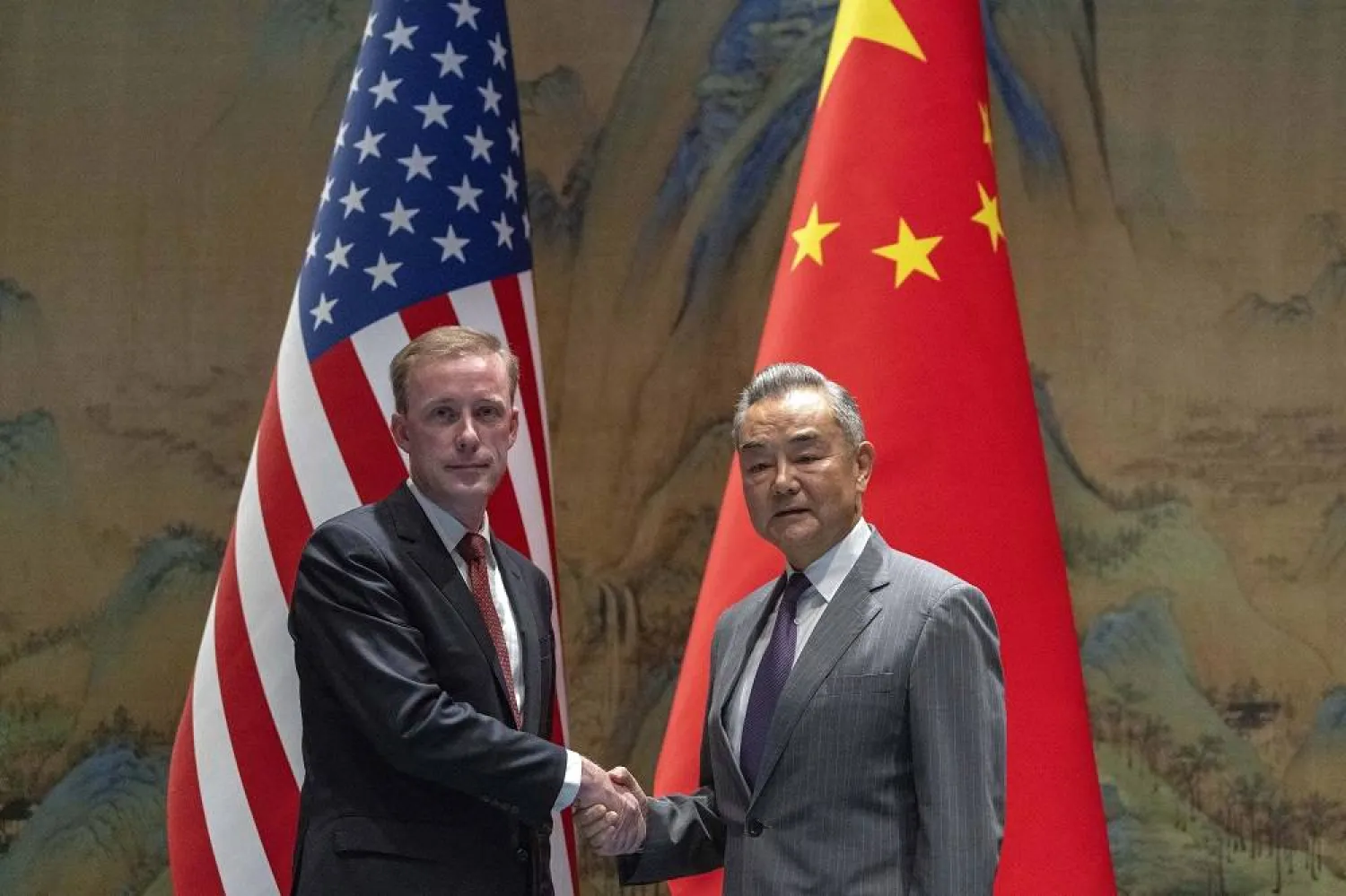US National Security Advisor Jake Sullivan and China's top diplomat Wang Yi said on Tuesday they were hoping for productive talks as they met in Beijing.
Washington allies Japan and the Philippines have blamed China in recent days for raising regional tensions, with Tokyo accusing Beijing of violating its airspace and Manila calling it the "biggest disruptor" of peace in Southeast Asia.
Sullivan said after he arrived in the Chinese capital on Tuesday afternoon that he looked forward to "a very productive round of conversations" with foreign minister Wang.
"We'll delve into a wide range of issues, including issues on which we agree and those issues... where there are still differences that we need to manage effectively and substantively," he said.
Wang told Sullivan he was keen for "substantive" and "constructive" talks during his visit, the first to China by a US national security adviser since 2016.
Wang added that he wanted the two sides to "help China-US relations move forward towards the San Francisco vision", referring to a framework hashed out by Presidents Joe Biden and Xi Jinping during talks in the US city last year.
An American official said ahead of the visit Sullivan would discuss the South China Sea with counterparts in Beijing, including Wang.
She did not indicate whether the United States expected any breakthroughs on the trip.
"We are committed to making the investments, strengthening our alliances, and taking the common steps on tech and national security that we need to take," the official said, referring to sweeping restrictions on US technology transfers to China imposed under Biden.
"We are committed to managing this competition responsibly... and preventing it from veering into conflict," she added, speaking on condition of anonymity.
She said the United States would press China on its mounting "military, diplomatic and economic pressure" on Taiwan, the self-ruling democracy that Beijing considers part of its territory and has not ruled out reunifying through force.
China has kept up its saber-rattling since the inauguration this year of President Lai Ching-te, whose party emphasizes Taiwan's separate identity.
"These activities are destabilizing, risk escalation, and we're going to continue to urge Beijing to engage in meaningful dialogue with Taipei," the American official said.
- Managing tensions -
Sullivan will also reiterate US concerns about China's support for the expansion of Russia's defense industry since its invasion of Ukraine.
Beijing counters that, unlike the United States, it does not give weapons directly to either side.
China has been eager to work with US national security advisers, seeing them as decision-makers close to the president who can negotiate away from the media spotlight that comes with the secretary of state or other top leadership.
The modern US-China relationship was launched when Henry Kissinger, then national security adviser to Richard Nixon, secretly visited Beijing in 1971 to lay the groundwork for normalizing relations with the communist state.
Sullivan and Wang have met five times over the past year-and-a-half -- in Washington, Vienna, Malta and Bangkok, as well as alongside Biden and Xi at the November summit in California.
Those meetings between Wang and Sullivan were sometimes announced only after they concluded and the two had spent long hours together behind closed doors.
Sullivan's visit also comes before US elections in November.









